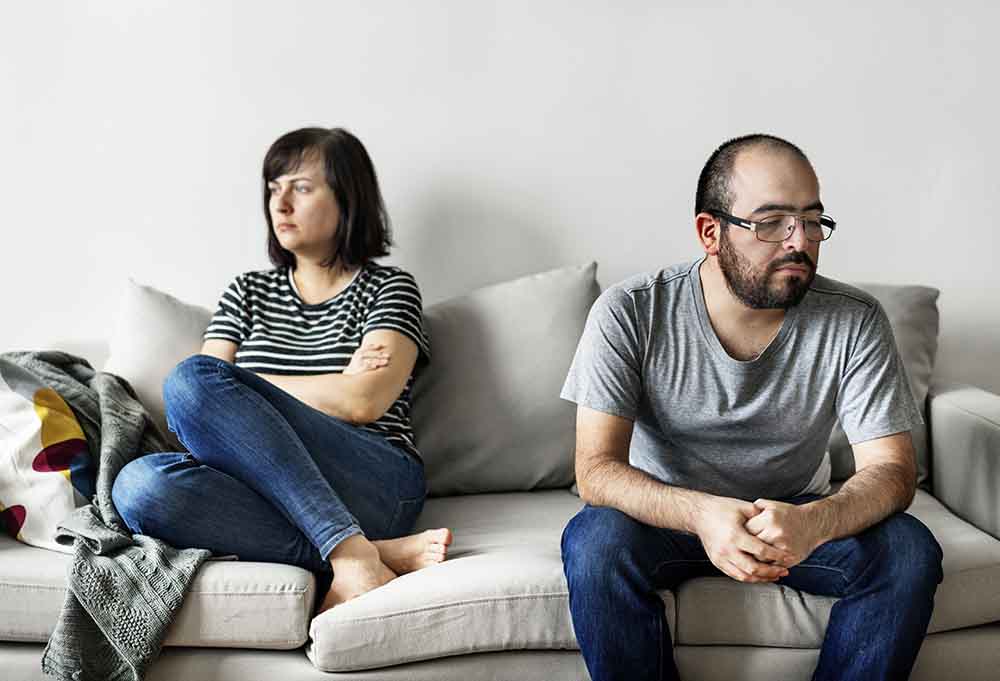There are always unintended consequences to every government action, especially those that have been hastily adopted. I predict that one of the unintended consequences of Canada’s Covid-19 policies will be an epidemic of deaths and injuries due to domestic violence and suicide attempts.
During the 24 years that I practised family law, I observed a large influx of separation and divorce cases every January and September. Having spent a lot of time cooped up with their partners over the Christmas or summer holidays, people finally realized what a big jerk or nagging witch their once-beloved spouses had become. They wanted out. All too often, the couple had actually come to blows.
I’m not imagining this seasonal phenomenon, although statistics are hard to find. However, my observations are corroborated by Carolyn S. Hennecy, a speaker and author on domestic violence, who notes that U.S. abuse shelters are often full beyond capacity at Christmas time. Additional corroboration comes from the Cherokee Family Violence Center in Canton, Georgia, which reports increased family violence during the summer months.
An article in New Statesman America attributes the Christmas spike in violence to “the combination of financial pressure, free-flowing alcohol and being cooped up in closed quarters.” That sounds accurate to me.
Schools are now closed indefinitely in several provinces. So are the daycare centers, libraries, movie theaters, swimming pools, and community centres—every alternative place where children could be kept occupied while parents work. Kids will be idle, bored, and up to mischief.
Hordes of parents who are ill-suited for the task are now attempting to home-school. Twitter tells their tales of frustration: one mother tweeted that she had been homeschooling her 6- and 8-year old kids for just over an hour, and thought teachers deserved to be paid a billion dollars a week. Her tweet had earned 594,500 “likes” in the two days between the time she tweeted and the time I wrote this article.
Parents who still work outside the home will be stressed about finding child care and paying for it. In many households, parents have been laid off involuntarily, so there will be less income, despite provincial guarantees. Add to this the frustration of waiting anxiously for a supermarket parking spot due to panic buying, plus the fear of finding empty shelves inside, and the stage is set for a massive increase in family violence and mental health problems.
Statistics Canada tells us that 26 percent of all reported violent crime in 2016 (the most recent year available) was from domestic violence. This number is probably far too low, since the related stigma is believed to prevent victims from reporting abuse in 81 percent of all cases.
What’s the death toll from domestic abuse in Canada? From 2010 to 2018, there were 662 deaths, according to the Canadian Domestic Homicide Prevention Initiative. That’s an average of 73.5 persons per year, mostly female. One of the contributing factors is said to be “social isolation”, something we are now being emphatically urged to engage in—ironically, to preserve our health.
The numbers above include only deaths. Domestic violence sometimes results in injuries that are not fatal, but are nevertheless severe and permanent. Sometimes the scars are psychological rather than physical, but these can be just as debilitating.
Rates of suicide in Canada closely mirror rates of marital breakdown.
Did our governments at various levels think through all these consequences before imposing restrictions and closures on most of our social and educational activities? Did anyone try to estimate how many additional people will die as a result of the unprecedented and unnatural conditions being forced upon us? My guess is that the number of dead and injured will far exceed what Covid-19 would have inflicted had people been allowed to gather at will. But of course, we’ll never know for sure, because even if such statistics were ever gathered, an error in judgment of this magnitude by the state would never be publicized.
Governments around the world have focused exclusively on stopping the spread of the virus. However, human beings are not powerless victims with no option but to sit helplessly and await the onslaught of the bugs. There are measures that individuals can take to bolster their immune systems, but we’ve heard nothing of that from the government—nor will we. Somebody might have to stick his neck out and do something different from the crowd. It’s far safer for politicians and bureaucrats to just do what everyone else is doing and let more of us die of other causes, because taking that “safe” course will never come to anyone’s attention or cause you to be held accountable.
Karen Selick is a senior research associate with Frontier Centre for Public Policy, and the owner of Keen Eyes Editing. Karen Selick received her law degree at the University of Toronto and spent 7 years as in-house counsel at CIBC then 24 years in private practice until 2009. Karen went on to serve as Litigation Director for the Canadian Constitution Foundation until 2015. She has written widely about legal issues from a libertarian perspective. She has been a columnist for The Lawyers Weekly and Canadian Lawyer magazine. Her work has also appeared in the Globe and Mail, the National Post, Readers’ Digest, The Freeman, and many other newspapers and magazines.



